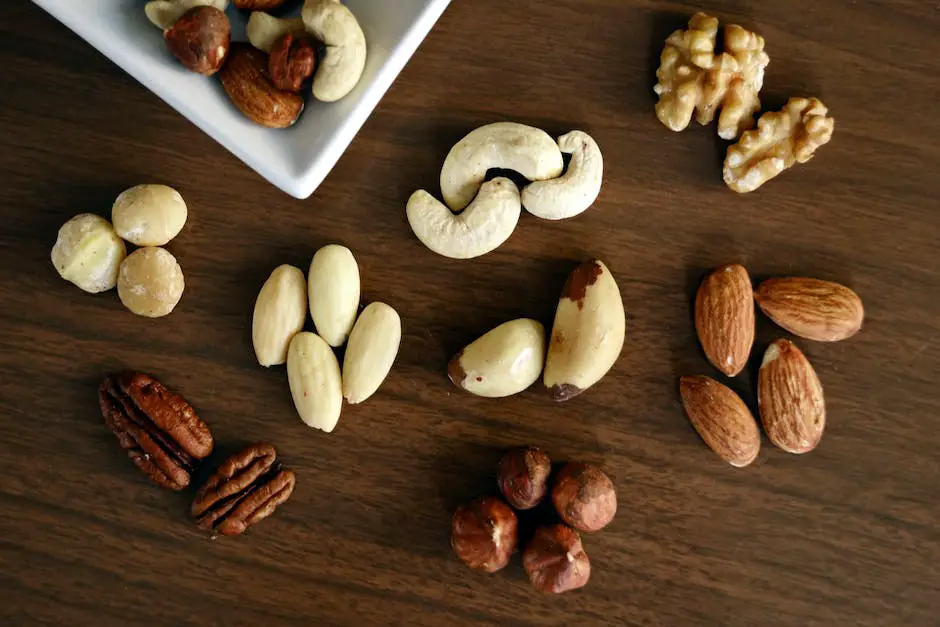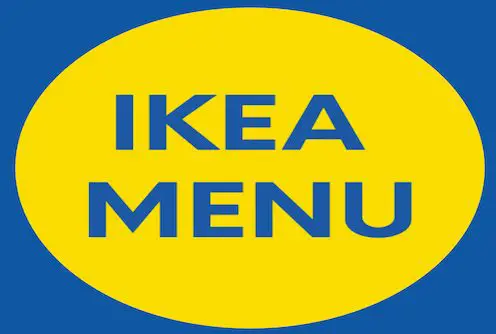As one of the premier wholesale corporations, Costco continues to set strides within the retail sector as it diversifies its product offerings. Its extensive line of nuts and seeds, particularly its pine nuts, have garnered significant attention and are increasingly becoming a focus of customer interest. This analysis provides an invaluable perspective on Costco’s market analysis, its dedication towards sustainable product sourcing, and how consumers perceive the value of their pine nuts. With a keen emphasis on Costco’s pricing strategies and market positioning, we delve deep into the intricacies of their maneuvering within the competitive nuts sales landscape. Coupled with an in-depth investigation of Costco’s sourcing and sustainability efforts for its pine nuts, we unfold a holistic picture of their corporate responsibility and impact which shapes their brand identity significantly. Generating understandings of consumer feedback and buying behavior rounds out our exploration of this niche product, offering a comprehensive examination of its market presence and impact within Costco’s substantial product catalogue.
Market Analysis of Pine Nuts at Costco
How Costco Strategically Prices Its Pine Nuts in a Competitive Market
The intriguing world of commerce is full of fascinating business strategies and pricing techniques that empower companies to stay on top of the market. One such business that consistently empowers its market presence and consumer appeal is Costco. Renowned for its deep discounts and premium bulk products, Costco has successfully cultivated a loyal customer base, partially due to its strategic decision-making and excellent pricing strategies.
When it comes to selling specialty goods like pine nuts, the pricing challenge is more complicated. Costco’s strength revolves around understanding the value perception of its customers and using that data to drive its pricing strategy.
Firstly, Costco employs an ingenious penetration pricing strategy. Just how does Costco make premium pine nuts affordable for all? It’s simple: by taking a lesser profit margin. They operate on the principle that the cost savings on bulk purchases should be passed on to the customer. Essentially, it’s a matter of taking a smaller slice of a larger pie.
Additionally, Costco cleverly plays the psychological pricing game with its customers. Pricing products just below a whole number, famously known as charm pricing, is an impressive strategy Costco employs. This technique gives customers a perception of lower price, significantly boosting sales. When you see a bag of pine nuts priced at $19.99 instead of $20, it doesn’t just sound cheaper – psychologically, it feels cheaper.
Another notable approach Costco adopts is its membership model. This ingenious element empowers engagement and loyalty, driving customers to make frequent purchases to justify their membership fee. Shoppers are more apt to purchase pine nuts from Costco than a competitors’ store because they feel as if they are receiving exclusive access to better deals.
With these pricing strategies in place, Costco successfully influences the perceived value of their products, ultimately winning the customer’s wallet. Yet, this approach doesn’t limit Costco’s ability to make a profit. Costco enjoys impressive earnings partially because of the economies of scale it accomplishes given its bulk purchasing operation.
Understanding Costco’s strategic pricing strategies offers a rich perspective into how businesses can leverage pricing to optimally engage customers, and maintain a competitive edge in densely populated markets. Employing conscious and effective pricing strategies is no small task – it demands an in-depth understanding of market dynamics, customer psychology, and shrewd financial management. Yet, it’s this keen commercial savvy that keeps innovators like Costco at the top of the big-box game.
Costco-pine-nuts.jpg
- Costco-pine-nuts.jpg

Product Sourcing and Sustainability for Costco’s Pine Nuts
While dissecting Costco’s strategy surrounding pine nuts – or any other product in their range – wouldn’t be complete without acknowledging their unique pricing model, an equally integral component of their approach lies within the comprehensive sourcing and sustainability practices put in place.
Sourcing ethically and responsibly has increasingly become a hot-button issue as consumers grow more conscious and crave transparency about where their purchases come from. Costco understands this shift in consumer behaviour and has accordingly adopted a stringent product sourcing policy. The company seeks pine nut suppliers who adhere strictly to sustainable farming practices, resulting in a reliably consistent and high-quality product.
The cornerstone of Costco’s approach is simple: partner with trusted suppliers committed to sustainability. For their pine nuts, it means partnering with entities dedicated to preserving the pine forests. The sustainable harvest of pine nuts ensures that the ecosystems these trees inhabit remain undisturbed – a win-win for both the environment and Costco’s bottom line.
Moreover, Costco ensures that its suppliers conduct fair trade practices and that employees involved in the harvesting and processing of pine nuts are compensated adequately. Respect for human rights is embedded in Costco’s supplier Code of Conduct, that demands its suppliers provide safe, healthy, and fair conditions for their workers.
In terms of maintaining the sustainability of its supply chain, Costco is not a passive participant. The company takes an active role in monitoring its supply lines to ensure that all stages of the product chain follow ethical practices.
An essential aspect of this framework is the inclusion of third-party audits. The audits verify that suppliers are adhering to the sustainability regulations Costco requires and that those practices continue over time. This commitment ensures that Costco’s pine nuts are sourced sustainably not just once, but every time a consumer puts a bag in their cart.
Lest we forget, Costco is one of the pioneers of creating a circular economy. The company recycles the majority of its waste, including organic materials like tree trimmings and unsold produce. It’s a testament to Costco’s broader ethos of integrating sustainability into their entire operational model.
In essence, Costco’s approach towards sourcing and maintaining sustainability of its pine nuts embodies a strategic blend of profitability and integrity. They’ve established a sustainable and ethical supply chain without compromising the quality of their product—a powerful testament that reflects their commitment towards stakeholders, consumers, and the planet.
Through proactive monitoring, direct involvement, and rigorous criteria for suppliers, Costco emphasizes that business success and sustainable practices are not mutually exclusive, but rather complementary and necessary for a long-term, fruitful existence. This strategy converts a seemingly simple commodity like pine nuts into a powerful symbol of Costco’s comprehensive approach to business.

Consumer Perception and Buying Behavior for Pine Nuts at Costco
It’s truly remarkable how Costco’s pricing strategies and their dexterous execution in procuring pine nuts, play a profound role in molding consumer perception. However, there’s another layer of engagement that transcends beyond pricing and quality, it’s the ensuing narrative of sustainability.
Sustainability, as a driver of engagement, often gets lost in the maze of pricing, promotions, and product quality. Yet, it stands as a distinctive point of convergence for today’s conscientious consumers, especially in Costco’s tale of sourcing pine nuts that’s intrinsically tied to the social and environmental climate.
Emphasizing sustainable sourcing and ethical supply chains, Costco has demonstrated that profit and integrity can traverse hand in hand. This approach, supported by strong supplier relationships tied to principles of fairness and equity, has not only created a reliable supply network, but instilled a high level of confidence among consumers.
Costco’s pine nut narrative is a shining example of demonstrating the company’s commitment towards preserving earth’s natural resources, which further strengthens brand loyalty. It’s noteworthy how Costco is actively involved in monitoring their supply chain, thwarting any adversities that might impact sustainability. The inclusion of third-party audits accentuates transparency and ensures conformity to sustainability regulations.
In essence, the sustainable procurement of pine nuts at Costco transforms their consumer offering into an encompassing narrative, one wider than the mere dimensions of price and quality, encompassing not just the chunk of nuts inside the bag, but also the story of the packet, the story of a preserved forest, the story of a worker paid fairly for their labor. It is this narrative that breathes value into their product and leads to a more realistically profound consumer engagement.
Moreover, Costco is aptly aware of the broader implications of its actions. Their commitment to the circular economy, demonstrated through vigorous efforts in waste recycling, plans a more viable role in sustainable global commerce. Their pursuit of sustainable practices represents a dynamic amalgamation of an environmental ethic with a comprehensive business strategy.
Costco’s pine nuts offering becomes a masterpiece when they leverage the interplay between pricing, quality, sustainability, and ethical value. Their pursuit to balance profitability with integrity accentuates conscientious capitalism, where business success is aligned seamlessly with sustainable and ethical practices.
Ultimately, consumers of today are drawn not merely by the quality or the price, but also by the values embedded within. Costco’s ethos resonates with this changing consumer psychography – a high-quality product, priced competitively, crafted responsibly, and sourced sustainably, makes a winning offering. And as long as Costco continues to uphold these principles, their pine nuts, and indeed, their broader business model, will keep stimulating positive consumer response. Through a strategic blend of pricing, quality, and sustainability, Costco offers an inspiring paradigm of ethical and profitable business operation.

Costco’s approach to marketing and selling pine nuts sets an intriguing case study in effective market positioning and sustainable sourcing within a competitive market landscape. Through its pricing strategies, seamless supply chain management, and strong commitment to sustainability, Costco has managed to carve its niche within the broader nuts and seeds market. The company’s avid understanding of its consumers’ perceptions and buying behaviors has further fueled its growth, leading to innovative approaches in promoting pine nuts amongst its wide customer base. It’s clear that the intersection of these key aspects has played a crucial role in influencing the success and acceptance of pine nuts at Costco. With a step in the right direction concerning the retail industry’s trends and consumer demands, Costco’s model of strategic product planning and execution holds promises for a sustainable and expanding market presence.


